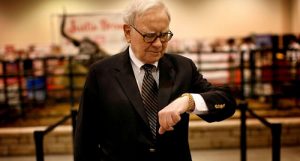Morrisons launches line of ‘carbon neutral eggs’ from hens fed on insects
Morrisons has launched a line of “carbon neutral eggs” from hens fed on insects reared on the company’s own food waste.
The supermarket chain said it is the first to launch such a line of eggs, which are the first product to be sold as part of the company’s drive to be directly supplied by zero emission British farms by 2020.
The hens laying the eggs are fed a soya-free diet, including insects fed on food waste from Morrisons’ bakery, fruit and vegetable sites, using an insect “mini farm” container from British start-up Better Origin, installed on site.
The supermarket said insects are a natural part of chickens’ ancestral diet and have no negative impact on the quality, shelf life or taste of the eggs.
Cutting out the soya avoids the emissions associated with clearing forests and other land to grow the crop in places such as Brazil, and the transport pollution from shipping the feed.
The farm where the first stock of carbon neutral eggs is coming from also has a large wind turbine, solar panels and a programme to offset any remaining emissions on the farm, with a fifth of its land planted with trees.
A report by Cambridge University, which looks at the production of the eggs, including the insect growing unit, food waste transport, sourcing of locally grown grain and hen housing and care, has shown they are carbon neutral.
Morrisons said the product is the first to feature the British Lion Egg green stamp to indicate the lower environmental impact to customers.
The free range eggs will initially be available in 50 Yorkshire stores, and Morrisons’ new lower environmental impact store in Little Clacton, Essex, with a national rollout planned for 2023. They cost 30p each or £1.50 for a pack of six.
The retailer hopes sustainable beef, lamb, fruit and vegetables from net zero carbon farms will follow.
Sophie Throup, head of agriculture at Morrisons, said: “This is our first carbon-neutral product and there will be many more to come. It’s all part of our drive to be directly supplied only by ‘zero emission’ British farms by 2030.
“We know our customers consider the environmental impact of the food they eat and want affordable zero emission produce.
“Eggs are a regular weekly purchase for most households and so we’re thrilled that, after 18 months of hard work with our farmers, these eggs are finally hitting our shelves.”
Ian Bamford, commercial director of the Centre for Industrial Sustainability at the University of Cambridge, said: “We were very pleased to have the opportunity to review and analyse the approach that Morrisons have taken to calculating the carbon impact of several of their egg producers.
“It was clear that the mitigation actions that had been put in place by the first farm to produce carbon-neutral eggs enabled them to meet that goal.”


